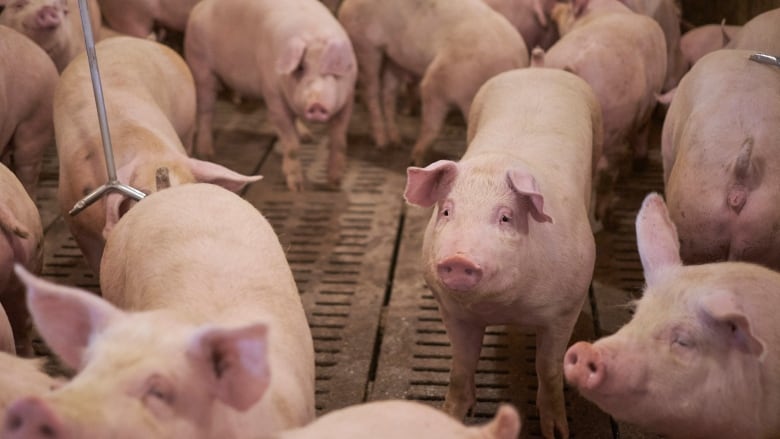Paradise Lost Looms for German Farmers as Swine Fever Nears

The German state of Brandenburg has erected about 120 km (75 miles) of electric fencing to prevent wild boars infected with African swine fever (ASF) from straying across the border from Poland and infecting its pig herd
By Michael Hogan – Reuters
Hans-Christian Daniels doesn’t think the barrier will work.
“It looks rather inevitable that swine fever will come,” said Daniels, whose farm near Tauche, close to the Polish border, has 11,000 pigs. “This could cause a dramatic fall in prices.”
ASF, which has led to the deaths of a quarter of the world’s pigs in China and roiled the global meat industry, is dangerously close to Germany, Europe’s largest pork producer.
A case of the viral disease was discovered in a wild boar in Poland just 12 km from the German border last month.
“There are hopes that the fence is effective, but these animals are remarkably strong”
A confirmed case in Germany could prompt an import ban, ending the boom times for local pig farmers, who have seen exports to China, the world’s biggest consumer of pork, jump due to outbreaks of ASF in Asia. It could also have knock-on effects in the Netherlands and Denmark, where the main suppliers of piglets for Germany are based.
Farmers such as Daniels have taken strict steps to ward off the disease but the biggest risk factor is from wild boars that roam the fields and forests along the German-Polish border feeding on nuts and acorns. They have already helped infect around 10 countries in eastern Europe, with Poland recording 55 outbreaks of ASF in wild boars in December alone.
“We do not know exactly how many wild boar we have in Brandenburg but their numbers have been increasing in recent years,” said Anja Semmele of the Brandenburg hunting association. “Our region is something of a paradise for wild boar, with a mix of forests and farming.”
“They run very quickly and hunters need a good level of marksmanship to hit and kill the animal humanely.”
POTENTIALLY LARGE LOSSES
ASF is a highly contagious viral disease that kills almost all the pigs it infects but does not harm humans. It has been spreading across eastern Europe but is doing the greatest damage in Asia and has devastated pig farms in China in the past year, reshaping global meat trade and raising prices.
China’s pork output has slumped to a 16-year low as herds were culled to stamp out the disease, leading to a surge in imports of pork, beef and chicken to fill the gap.
Germany’s pork exports to China rose 43% year-on-year in the first seven months of 2019 and it was Germany’s single biggest foreign market.
Asian countries, including China, regularly impose import bans on pork from regions where ASF has been discovered and German pig farmers could face huge losses from both the drop in exports and costs arising from methods to combat the disease if it is found in Germany, said farmers’ association DBV.
“It is difficult to estimate how high the damage will be for German pig farmers,” said DBV Secretary General Bernhard Kruesken. “But we estimate at least a triple-digit million euro sum.”
Any export ban on German pork would also have knock-on effects for other European countries.
“The main suppliers of piglets for Germany in the EU are Denmark and the Netherlands. That means there will be effects in the Dutch and Danish markets quite immediately,” said Thomas Sanchez, a policy advisor with responsibility for pigmeat at EU farmers group, Copa Cogeca.
To help deal with the threat of ASF, German and Polish agriculture ministries are considering creating a fenced corridor on both sides of their border and a “drastic” reduction in wild boar numbers by relaxing rules on shooting them.
The Brandenburg fence was built in December and is designed to be temporary. Another fence is being built in the border state of Saxony.
“We have found no signs that the fence has been broken through by wild boars and no sick boars have been found along the fence,” said Gabriel Hesse of Brandenburg’s state health and consumer protection ministry.
“There are hopes that the fence is effective, but these animals are remarkably strong.”












